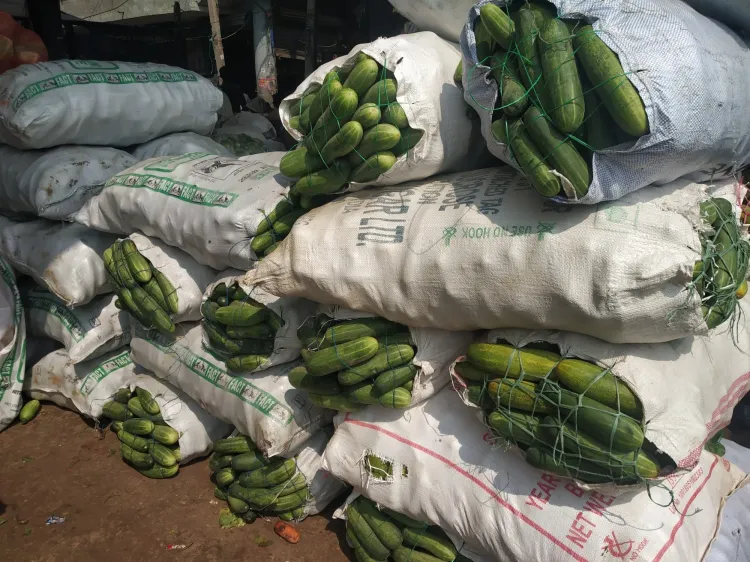Was a Smuggling Attempt of 150 kg Sea Cucumbers Foiled in Nagapattinam?

Synopsis
Key Takeaways
- 150 kg of illegal sea cucumbers seized in Nagapattinam.
- Operated by a known trafficker, Muruganandham.
- Sea cucumbers are banned under Indian wildlife laws.
- Authorities are intensifying coastal surveillance.
- Ongoing investigations aim to uncover broader smuggling networks.
Chennai, July 12 (NationPress) In a significant operation against marine wildlife trafficking, approximately 150 kilograms of unlawfully harvested sea cucumbers were confiscated near Keechankuppam in the Nagapattinam district on Saturday.
The seized contraband, estimated to be worth around Rs 4 lakh, was uncovered during a coordinated effort by forest officials and the Marine Police. This marks the third seizure in the district this month, underscoring an alarming trend in the illicit trade of this protected marine species.
Following a tip-off, enforcement teams conducted a raid in a remote area near the Salt Road in Keechankuppam, close to a local burial ground. The sea cucumbers, which are banned under Indian wildlife regulations, were discovered concealed in brine-filled containers hidden within a grave enclosure, poised for transport to Sri Lanka via Rameswaram.
Officials suspect that the smuggling operation was led by Muruganandham, a resident of Salt Road and a notorious repeat offender in sea cucumber trafficking.
Upon noticing the approaching enforcement team, he allegedly fled the scene, abandoning the contraband.
Sources within the Forest Department disclosed that Muruganandham has been linked to over 20 prior incidents of attempted sea cucumber smuggling, consistently utilizing the same route through Rameswaram.
Sea cucumbers, regarded as a delicacy and utilized in traditional medicine in various parts of East Asia, are classified under Schedule I of the Wildlife Protection Act in India. Their capture, possession, and trade are strictly forbidden.
This species plays a crucial ecological role in sustaining the health of the seabed, making their conservation essential for marine biodiversity.
The operation was spearheaded by Marine Police Inspector Ramesh Kumar and Forest Range Officer Adhilingam. The confiscated marine creatures were transferred to the Forest Department for further investigation and appropriate legal action.
Officials have reaffirmed their dedication to combating marine wildlife crimes and have enhanced surveillance along the Nagapattinam coastline, particularly in identified smuggling hotspots.
Ongoing investigations aim to apprehend Muruganandham and trace his broader network involved in illegal trade. The repeated seizures this month have sparked concerns among environmentalists and authorities, prompting calls for improved coastal monitoring and stricter enforcement of wildlife protection regulations.










